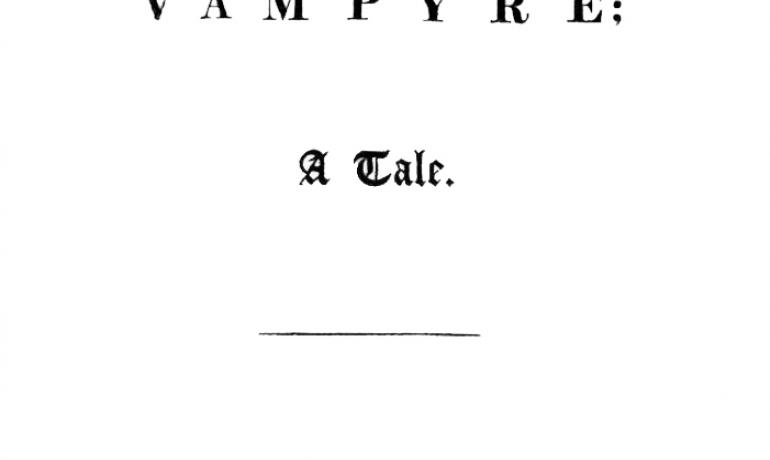Bicentenary of 'The Vampyre' by OA John William Polidori

With 2019 marking the bicentenary of OA John William Polidori's The Vampyre, the British Library have recently held an event to celebrate the legacy of this groundbreaking book. Published on the 27th of March 1819, The Vampyre is reckoned to be the very first Gothic novel and has since influenced countless other writers.
In attendance at the event on the 12th of April was Fr Terrence who has kindly provided a summary of the event which you can read below.
The British Library hosted a lively talk and discussion on Friday 12th April on the Ampleforth alumnus John William Polidori. About two hundred people came to hear a panel consisting of the horror novelist Kim Newman, and academics Emma McEvoy and Nick Groom (known as the Prof of Goth) discuss the bicentenary of The Vampyre. This short novel by John William Polidori was published in London in 1819.
Polidori himself had been at Ampleforth from 1804 until 1810. He went on to qualify as a doctor, and then got a job as Lord Byron's as his personal physician. Just after the Battle of Waterloo, the two of them were joined by Percy Shelley and Mary Shelley on a tour of Europe. But the weather was terrible. The year 1816 is described as "the year without a summer" due to the after effects of the massive volcanic eruption of Mount Tambora the previous year, so the four tourists were stuck indoors at the Villa Diodati overlooking the storms on Lake Geneva. To amuse themselves they decided to write ghost stories. Polidori's "The Vampyre" was the first one to be published, and was soon followed by Mary Shelley's "Frankenstein".
The legend of vampires can be traced back into central European folklore. But what is significant about Polidori's melodramatic novel is that it is the first "gothic" novel. And we can trace the modern gothic horror story, scary film and even the goth fashion genre back to this book. Unlike the vampires of folklore, Polidori's vampire is aristocratic with a magnetic personality, and he is attractive to women. Of course the genre is not fully developed yet (Polidori's vampire does not have fangs, for example - that has to wait for Bram Stoker's Dracula), but the basis is there for one of the most popular and enduring classes of entertainment.
We do know that Polidori was exceptionally well-read, and that he had received a rounded education. But unfortunately the discussion never revealed how much influence Ampleforth had on Polidori's imagination. But perhaps those dark nights in rural north Yorkshire had an effect on his subconscious that only emerged in that dreadful wet summer of 1816?
Fr Terence